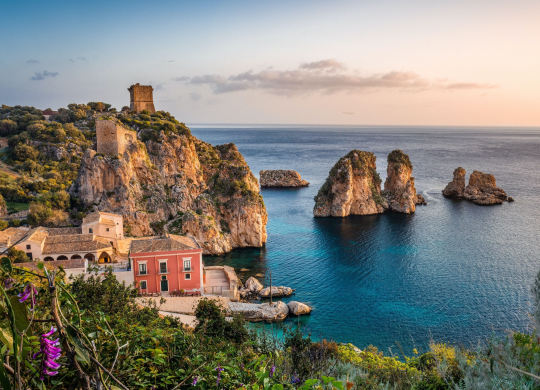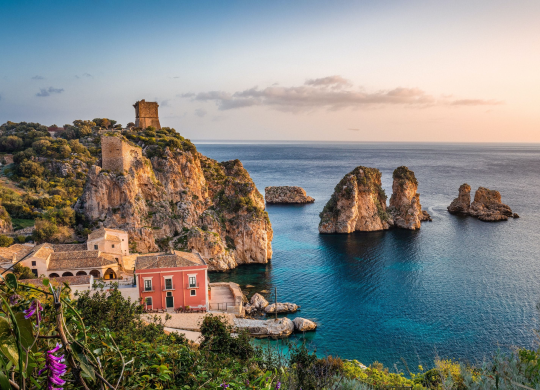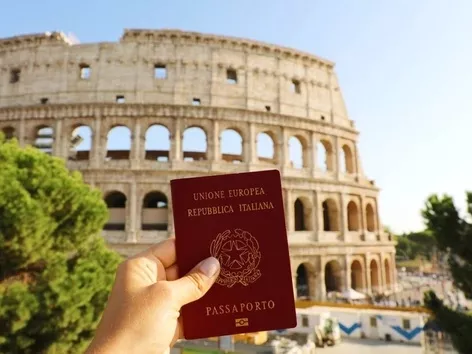Italian Medical System in 2025: A Guide for Foreigners
Table of contents
- The Italian Healthcare System
- Advantages of the Italian Medical System
- Disadvantages of the Italian Medical System
- How to Get Medical Care in Italy?
- Medical Tourism in Italy
- Cost of Medical Services in Italy for Foreigners (2025)
- Best Medical Centers for Foreigners
- Who Goes to Italy for Treatment – and Why?
- How to Get a Visa for Treatment in Italy
- How to plan a medical trip to Italy?

In 2025, Italy continues to attract foreigners with its high-quality and affordable healthcare. Learn how the Italian health system works, who can access medical care, what services are available, how much they cost, where to get treatment as a foreigner, and how to apply for a medical visa
Italy has long been recognized for its rich cultural heritage, world-class cuisine, and breathtaking landscapes. But in recent years, it’s also gained increasing attention as a destination for high-quality, affordable healthcare. In 2025, Italy’s medical system continues to attract foreigners — both residents and visitors — seeking efficient and expert care. This guide will help you understand how the Italian healthcare system works and what to expect if you're planning medical treatment in Italy.
Choose a reliable health insurance policy on the Visit World portal to protect yourself from unforeseen expenses during your move. Support from a trusted insurance agent with a guaranteed payout in just a couple of clicks!
The Italian Healthcare System
Italy’s healthcare system, known as the Servizio Sanitario Nazionale (SSN), is a regionally-based public service that provides universal coverage to citizens and residents. The SSN is funded primarily through taxes and delivers services either directly or through accredited private providers. Emergency care is free for everyone, including tourists.
In 2025, the Italian system continues to evolve with increased digitalization, more emphasis on telemedicine, and reforms aimed at reducing regional disparities in care quality.
Advantages of the Italian Medical System
- Universal coverage: All residents and legal foreign workers have access to public healthcare.
- High-quality doctors: Italy is known for producing excellent medical professionals, many of whom have international training.
- Affordable private care: Compared to countries like the U.S. or Switzerland, private healthcare services are significantly cheaper.
- Integrated services: Hospitals often coordinate with general practitioners, specialists, and rehabilitation centers, ensuring continuity of care.
- Emphasis on prevention: Routine screenings and health education are part of public health programs.
Disadvantages of the Italian Medical System
- Long waiting times: In the public system, non-urgent procedures and specialist appointments can take weeks or even months.
- Regional inequality: The quality and availability of services may vary significantly between the north (generally better) and the south.
- Language barrier: While many doctors in major cities speak English, this is not guaranteed, especially in smaller towns or public hospitals.
- Bureaucracy: Paperwork and registration processes can be slow and complex for foreigners unfamiliar with the system.
How to Get Medical Care in Italy?
- For Residents
Foreigners with residency in Italy can register with the SSN by obtaining a tessera sanitaria (healthcard). This gives access to public doctors, hospitals, and discounted medication.
- For Tourists and Short-Term Visitors
Emergency care is free, but for non-emergency treatment, you must pay out of pocket or have private insurance. Some travelers buy temporary health insurance or rely on European Health Insurance Cards (EHIC) if from the EU/EEA.
- Private Clinics
Many foreigners opt for private healthcare providers to avoid wait times. These services are often reasonably priced and widely available in cities like Rome, Milan, and Florence.
Medical Tourism in Italy
Italy is increasingly becoming a hub for medical tourism in 2025. Patients from the EU, Middle East, North America, and even Asia travel here for treatments in areas like:
- Cosmetic surgery
- Dental care
- Fertility and IVF treatments
- Orthopedics and rehabilitation
- Cancer treatment and diagnostics
- Cardiovascular surgery
Medical tourists are drawn by the combination of expert care, shorter wait times compared to their home countries, and the chance to recover in a beautiful setting.
Cost of Medical Services in Italy for Foreigners (2025)
Here’s a general breakdown of common private healthcare costs for non-residents:
- GP Consultation: €50–€100
- Specialist Visit: €80–€200
- Dental Cleaning: €60–€120
- MRI Scan: €250–€600
- Cosmetic Surgery (e.g., rhinoplasty): €3,000–€6,000
- In vitro fertilization (IVF): €4,500-€8,000
- Knee replacement: €10,000-€15,000
- Rhinoplasty (nose job): €4,000-€6,000
- Dental implants (per tooth): €1,000-€2,000
- Coronary artery bypass grafting: €15,000-€25,000
Note: Costs may vary by region and facility. Always confirm with the clinic in advance.
Best Medical Centers for Foreigners
Several hospitals and clinics in Italy cater specifically to international patients:
- Humanitas Research Hospital (Milan) – A top-tier private hospital with international services.
- Policlinico Gemelli (Rome) – Affiliated with the Catholic University, known for oncology and cardiology.
- San Raffaele Hospital (Milan) – Offers cutting-edge technology and English-speaking staff.
- Ospedale Pediatrico Bambino Gesù (Rome) – One of Europe's best children’s hospitals.
- Villa Donatello (Florence) – Popular for diagnostics and preventive health packages for expats and tourists.
Who Goes to Italy for Treatment – and Why?
People who choose Italy for medical treatment typically fall into these groups:
- Medical tourists from Europe: Seeking affordable but high-quality care, often in fields like dentistry or orthopedics.
- Wealthy patients from the Middle East, Moldova and Russia: Looking for advanced care and post-treatment relaxation in Italian resorts.
- Expats and retirees: Especially from the U.S., Great Britain and New Zealand, who combine long-term stays with routine or specialized care.
- Second-opinion seekers: Foreigners visiting top Italian specialists before undergoing major procedures at home.
How to Get a Visa for Treatment in Italy
Foreign nationals from non-Schengen countries who plan to receive medical care in Italy may apply for a Medical Treatment Visa. Key steps include:
- Invitation letter from an Italian hospital or medical provider confirming the treatment plan.
- Proof of financial means to pay for the treatment and stay.
- Travel insurance with medical coverage for the Schengen area.
- Visa application form submitted to the nearest Italian consulate.
- Processing times vary, but it’s advisable to apply 4–6 weeks in advance. In some cases, patients may also bring a companion caregiver under a special visa provision.
How to plan a medical trip to Italy?
- Consultation: Discuss with your local physician and identify suitable Italian medical facilities.
- Documentation: Secure an invitation from the chosen Italian medical institution and gather necessary medical records.
- Visa Application: Apply for a medical visa at the Italian consulate or embassy in your country.
- Travel Arrangements: Plan your travel and accommodation, considering proximity to the medical facility.
- Post-Treatment Care: Arrange for follow-up appointments and consider recovery time in Italy before returning home.
The Italian medical system in 2025 continues to blend efficiency, expertise, and affordability — making it an appealing option for foreigners. Whether you're an expat, a tourist with an emergency, or someone planning a medical trip, understanding how to navigate the system will ensure you get the best possible care in Italy.
Order a treatment guide on the Visit World portal – a convenient assistant for anyone planning a medical trip to Italy. In it you will find: up-to-date information on visa fees and application processing times, a complete list of required documents, step-by-step instructions for obtaining a medical visa – from filling out the application form to passing the interview, as well as tips and life hacks for a comfortable stay in the country.
Plan your treatment easily – with Visit World!
Let's remind you! The transport system in Italy in 2025 is modern and understandable. We have already talked about the rules, types of transport, payment and useful applications.
Products from Visit World for a comfortable trip:
Checklist for obtaining a visa and necessary documents in Italy;
Legal advice on immigration to Italy;
Travel insurance for foreigners in Italy;
Medical insurance all over the world.
We monitor the accuracy and relevance of our information. Therefore, if you see any error or discrepancy, please write to our hotline.
Frequantly
asked questions
Do I need health insurance to get medical care in Italy as a tourist?
Can I get medical treatment in Italy without speaking Italian?
How long does it take to get an appointment with a specialist in Italy?
Recommended articles
2 min
Work
Italy is a country with a rich culture and history, whose fantastic landscapes attract tourists and expats from different parts of the world. The state is the leader in the number of migrants, in addition, it has the highest rates of issuing temporary residence permits in the EU. Find out how a foreigner can move to Italy for work, what are the conditions for obtaining a visa and what package of documents is required for moving
18 Feb. 2025
More details1 min
Treatment
Healthcare in Canada for Expats and Medical Tourists: a detailed guide for foreigners
Canada continues to be one of the most attractive destinations for medical tourism in 2025 thanks to a combination of quality, innovation and affordability. Find out how the healthcare system in Canada works, why the country attracts foreigners for treatment, which clinics are the most popular among medical tourists and other important information
30 Apr. 2025
More details2 min
Treatment
Health Insurance and Visa for Treatment in Spain: current rules
Spain offers one of the best healthcare systems in Europe, combining public and private healthcare. Find out how to get healthcare in Spain, what rights foreigners have for free treatment, and the specifics of health insurance in the country
11 May. 2025
More details1 min
Expats
Obtaining Italian citizenship by descent is a great opportunity for people of Italian descent to obtain an Italian passport and all the privileges that come with it. Find out who is eligible for citizenship by descent, what requirements and documents are needed, how the application process works, and what important changes to the rules come into effect in 2025
10 Apr. 2025
More detailsAll materials and articles are owned by VisitWorld.Today and are protected by international intellectual property regulations. When using materials, approval from VisitWorld.Today is required.
